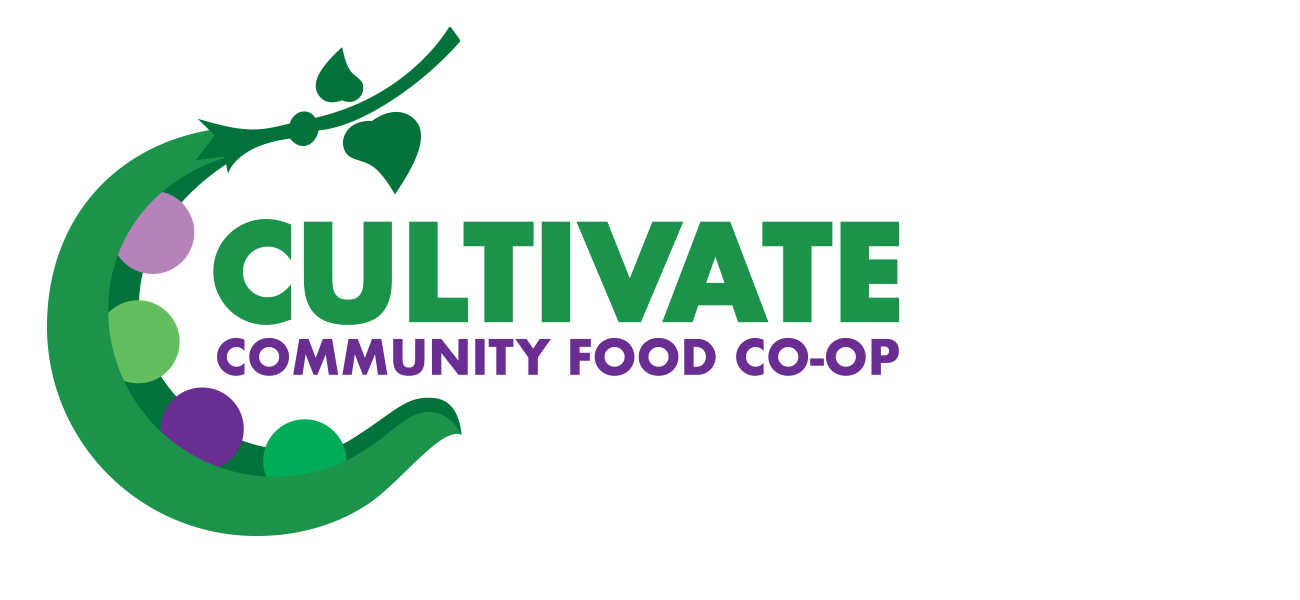
by Janine Ryle | Aug 16, 2022 | Uncategorized
Out of everything this pandemic has taught us, the importance of community is right there near the top. We all know it’s valuable, but how exactly do you create it?
We each are part of multiple communities. We have our families, our work colleagues, our friends, people we meet at events and classes, and so forth. Many of these form effortlessly, others are created with intention. So, how can we all come together and create a community surrounding and supporting our co-op?
CCFC was off to a great start. People were finding out about us, becoming owners, and telling their friends. We were hosting fun events, participating in parades and other community festivals, getting the word out and growing steadily. Then the pandemic hit and we were all on lockdown. How on earth could we let people know about the co-op and increase our ownership without being out at the Farmer’s Markets and various events around town?
We had to quickly re-evaluate our plans and find effective ways of raising awareness and ownership without the distinct advantage of being out in public. We organized a group of owner volunteers (our Community Cultivators) to help distribute food to those in need in Vallejo and Benicia. We had field trips to local farms and other outdoor activities that were COVID-safe. Behind the scenes, the board fine-tuned our policies and by-laws, and made sure our foundation was solid. Although you may not have seen us as much, we were very busy!
And yes, we are still here! Now that things are opening up more and more, we’ve been able to table at the Farmer’s Markets, the Vallejo Art Walk, and had a lovely “Get to Know Us” event at Avant Garden in Benicia. And now that we are over 500 owners, we are preparing for things to start moving very quickly.
We’d like to cultivate our community of owners by offering more events, potlucks, farm tours, happy hours and such, where you can all meet and get to know each other. We are a vibrant and diverse group! However, we need more hands on deck to make it all happen. If you have the time available, please complete our Volunteer Form to join a team of like-minded owners who want to get this co-op open soon and have fun together. We look forward to hearing from you, and to working side-by-side with you to open our store!
Link to Volunteer Form: https://forms.gle/Nn7m2NYpSookLTKB8

by Janine Ryle | Dec 13, 2021 | Uncategorized
So many cities have successful composting programs—why not Benicia and Vallejo? You may have been asking yourself this question. Or maybe you are unsure of the benefits of city-wide composting programs. It’s all part of the big changes coming our way on January 1, 2022, in an effort to reduce food waste in landfill.
As you may be aware, methane is a greenhouse gas and one of the main contributors to global warming. Our landfills emit plenty of it. The problem is that we allow far too much food waste to enter our landfills. To address this situation, the California Senate passed SB 1383 back in 2016. Now, over five years later, its rules will go into effect for every city and county in California on January 1st.
The bill calls for a 75% reduction of organic waste disposal in landfills by 2025. It also requires the rescue of at least 20% of currently wasted surplus food in the same timeframe. It’s an ambitious goal, and it’s a good thing so many other Bay Area cities are ahead of the curve on this. Now it’s our turn to catch up.
How much food gets thrown away? Shockingly, 40% of the food produced in California alone goes uneaten. 6 million tons of food goes into our landfills and makes up 56% of their content. At the same time, we have urgent food needs in our state, as one in four Californians go to bed hungry. In Solano County alone, it is estimated that up to 15% of our residents are food insecure, including 17% of the children here, who are often ineligible for federal nutrition programs.
Food businesses will be required to donate edible food to local recovery organizations instead of throwing it away. It’s estimated that this could help feed almost all the Californians who don’t have enough to eat.
Add to this the fact that around 45% of Solano County residents have limited access to healthy and affordable food, it makes a lot of sense to open the county’s first food co-op right here.
How will the impact you? If you aren’t already composting your food waste to use in your garden, you’ll now be able to compost it in your green bin. In addition, our cities will be required to use it for renewable energy, mulch, and compost for city green spaces.
For more information, please contact your local haulers and government officials below:
BENICIA—Republic Services Benicia (925) 685-4711 www.republicservices.com
City of Benicia Recycling Coordinator: Sharon Denney SDenney@ci.benicia.ca.us
VALLEJO—Recology Vallejo (707) 552-3110 www.recology.com
City of Vallejo Recycling Coordinator: Derek Crutchfield Derek.Crutchfield@cityofvallejo.net
For detailed information, including presentations, posters, and more, please see the Cal Recycle website: https://www.calrecycle.ca.gov/organics/slcp/education.


